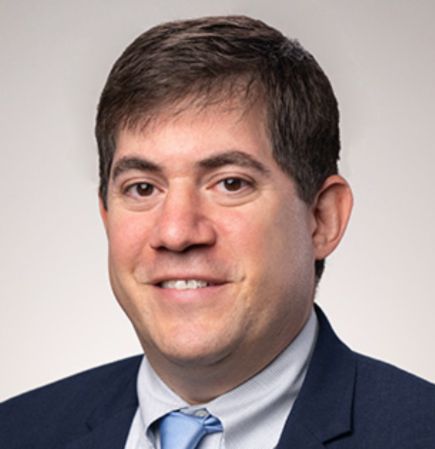Jonathon Cohen, a hematologist and medical oncologist at the Winship Cancer Institute of Emory University, often sees patients who need cancer therapy but are forced to drive for hours across the state in order to take part in Atlanta-based clinical trials. As a researcher studying lymphoma — cancer that originates in the body’s lymph nodes — he’s working to change that.

Prof. Jonathon Cohen
Traveling to Atlanta might not seem like an insurmountable obstacle, but for some people, the total costs, including co-pays, parking and gas can add up when a trial requires repeated visits. Cohen’s work, funded by grants from the National Institutes of Health and The Leukemia & Lymphoma Society, will address these problems by building connections with oncologists throughout the state to create broader access to the complex clinical infrastructure that makes it possible to carry out medical trials.
It seems such an obvious idea — why not make clinical trials available everywhere? Cohen says realizing that vision is a massive undertaking.
“You have to make sure you have the staff in place,” Cohen says. “In many areas of the state, physicians are already overworked. There aren’t enough doctors to see patients that need to be seen. In addition to the physicians, clinical staffing has been a challenge” he adds. “We need clinical research coordinators who come to the clinic and help make sure patients get what they need and where they need to go. It’s a challenge to identify qualified coordinators and retain them, especially in some of the more rural areas of the state.”
Scientific benefits of rural trials
When more patients take part in a trial, the results are available faster, which speeds up the process of moving a successful treatment to the patient bedside. But there’s an additional benefit: demographic diversity.“Patients in the community are often going to be older,” Cohen says. “There’s differences in race and ethnicity between the patients seen at a large comprehensive cancer center versus those that aren’t, and there are also frequently differences in socioeconomic status, environmental exposures, and many other factors which may influence how well a therapy works.”
Cohen says that’s a benefit for the science itself because a broader patient database makes the resulting scientific findings more robust.
“We are looking at the biology of lymphoma in different racial or ethnic groups where it's clear that there's some differences that may impact the way patients respond to therapy or tolerate therapy,” says Cohen. “So, there are reasons to make sure that patients in a variety of settings are receiving therapies that are going to potentially be approved.”
After years of conducting clinical trials, Cohen is confident people from underserved communities far from big population centers are just as likely to take part if they only have the chance. His own research, as well as research by others, has also shown that patients who participate in clinical trials live longer.
“We know that if patients have access to trials, they're likely to do better,” he says. “Patients in their own community are going to be more comfortable speaking up and bringing up issues that they're dealing with because it's people that they know and trust. I think it really makes the entire experience for patients that live in rural communities better in addition to helping them live longer.”

